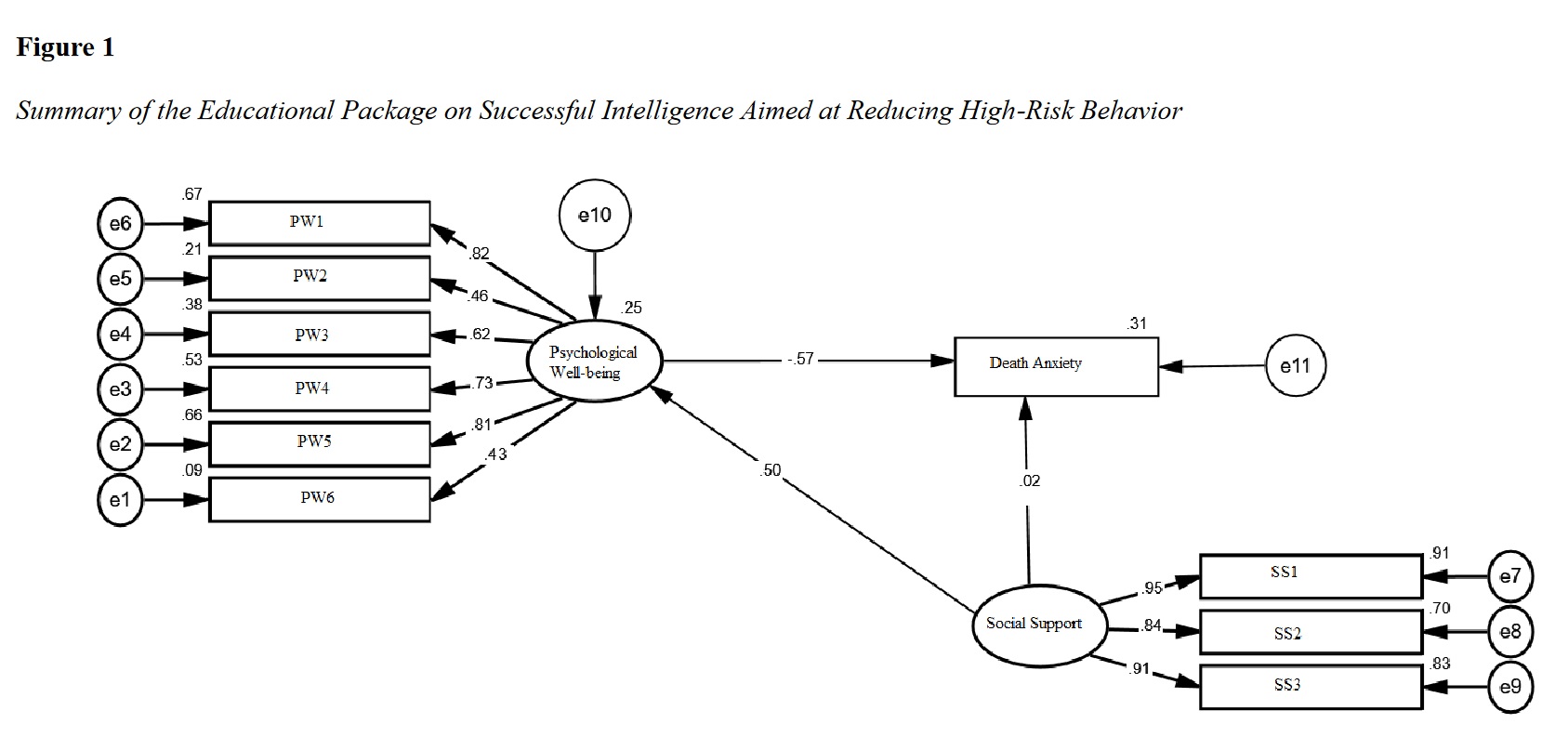Developing a Model of Death Anxiety Based on Perceived Social Support with the Mediation of Psychological Well-being in the Elderly with COVID-19 Experience
Abstract
Objective: The coronavirus and its variants continue to threaten the physical and mental health of many individuals, particularly among older adults with COVID-19. The current study aimed to investigate the mediating role of psychological well-being in explaining the effect of perceived social support on death anxiety among the elderly with COVID-19 experience in Tehran.
Methods and Materials: This descriptive correlational study's population comprised all elderly men and women aged 65 to 75 years living at home in Tehran in 2022, who had experienced COVID-19 in the past six months. Among them, 400 individuals were purposively selected as the sample group and responded to the Death Anxiety Scale (Templer, 1970), the Perceived Social Support Scale (Zimet et al., 1988), and the Psychological Well-Being Scale (Ryff, 1989). For data analysis, the structural equation modeling method was used. The data obtained through confirmatory factor analysis and AMOS24 software showed that the research's structural model fits with the collected data.
Findings: There was a positive and significant relationship between perceived social support and psychological well-being, a negative and significant relationship between perceived social support and death anxiety, and a negative and significant relationship between psychological well-being and death anxiety. Also, the indirect pathways between death anxiety and perceived social support, and death anxiety were proven (p = 0.001).
Conclusion: Considering the results of the present study, it can be said that perceived social support influences death anxiety among the elderly with COVID-19 experience through psychological well-being. The findings of the current study can be utilized by counselors, psychologists, and health specialists.
Downloads

Downloads
Additional Files
Published
Issue
Section
License
Copyright (c) 2024 Roghayeh Hamidi (Author); Parvaneh Ghodsi (Corresponding Author); Sadegh Taghiloo (Author)

This work is licensed under a Creative Commons Attribution-NonCommercial 4.0 International License.














